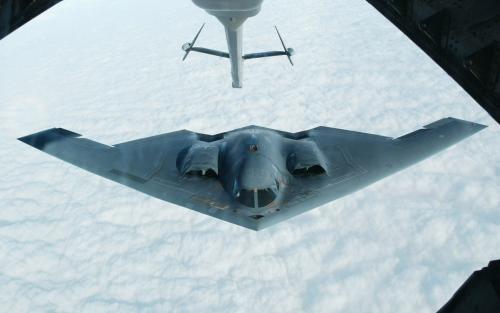My colleague, Brookings Senior Fellow Kenneth Pollack, launched his new book entitled Unthinkable: Iran, The Bomb, and American Strategy at an event here earlier this week. The book offers a comprehensive review of U.S. policy toward Tehran and makes a compelling argument that containment — even in the case of a nuclear Iran, a proposition long considered “unthinkable” in official Washington circles — offers the best prospects of advancing American interests.
Ken may be best known for his work on Iraq, particularly his blockbuster book The Threatening Storm: The Case For Invading Iraq, which was published in 2002 and helped shape the debate surrounding the Bush Administration’s decision to invade Iraq. His experience includes long service in the U.S. intelligence community, the Clinton White House, and as an academic and pundit on Middle East policy issues who has published widely on a range of issues. Unthinkable is no less than his third book on Iran, following The Persian Puzzle in 2005 and Which Path to Persia? in 2009. Each exhibits Ken’s trademark approach of thorough research and judicious appraisal of the unpalatable options available to the international community for dealing with Tehran.
I won’t attempt to recapitulate Ken’s arguments in Unthinkable here — for that you really ought to buy or borrow the book, which has already received rave reviews. While his endorsement of containment may be considered heretical within the bounds of the conventional policy debate here in Washington, it reflects a sober, reasonable and tremendously well-informed analysis. I happen to agree with Ken, but even those who dispute his recommendations will find a great deal of value in Ken’s articulation of the history of the nuclear crisis with Iran and the challenges associated with alternative U.S. policy approaches.
The launch event featured a terrific discussion of a number of important aspects of U.S. policy toward Tehran between Ken and Robin Wright, a joint fellow at the U.S. Institute of Peace and Woodrow Wilson Center who herself has written a number of books on Iran and the wider region. You can listen to the full conversation between Ken and Robin, and the contributions of our packed auditorium, here.
One of the most interesting moments came as Ken and Robin offered differing perspectives on the state of Iran’s influence in the region and the world. In broad terms, Ken argued that Tehran today is on the ropes: its economy is in shambles and its government is still severely isolated, at odds with most neighboring governments, and reviled by many Arabs. He pointed out that Washington’s intense focus on Iran has a way of overstating the actual threat, and maintained that our policies should be framed by a clear-sighted appreciation of the limits of Iran’s influence and power.
Robin Wright played the foil for this debate, and suggested that despite their evident challenges, Iranian leaders seem to see themselves as on a roll: they have watched their own reach expand even as American troops have exited Iraq and, soon, Afghanistan; they are confident in the profound unwillingness of the American people to embark upon another Middle Eastern military adventure; and through their provision of materiel, training and military advisors, they have enabled Bashar Assad to reclaim brutal advantage in his country’s civil war; and they have endured one of the most intrusive sanctions regime the international community has ever constructed.
This brief exchange encapsulated one of the primary dilemmas of the Washington policy debate on Iran: we have an incredibly schizophrenic view of Iranian influence and capabilities. I have watched as at least three U.S. administrations have alternatively articulated foreboding warnings about Iran’s “bid for regional hegemony” (note: it’s always a bid, never consummated, despite 30 years of trying) and then exulting in their success in “setting Iran back on its heels.” It makes me wonder about the merits of these up-or-down assessments, which tend to be incredibly fluid and subjective, in formulating our policies or calibrating our influence.
I’ve argued in the recently-released Brookings Essay on Iran that we are witnessing a shift of historic proportions in Iran’s approach to the world, one that is not irreversible or inevitable but still of profound significance. However, as the discussion at the Unthinkable launch event demonstrates, reasonable people can differ on how to characterize Iran’s posture today, and how best to persuade — and/or coerce — Iranian leaders to embrace more responsible policies at home.
What do you think? Should Washington view Iran’s Islamic Republic as beleaguered and chastened by sanctions and the divisive Ahmadinejad era, or should U.S. policy remain guided by the assumption that the regime today remains a surging threat to regional stability? Are these perspectives mutually exclusive, or can we develop a sufficiently nuanced policy to incorporate the elements of truth in each perception? Weigh in via [email protected] — we’ll return to this debate to share reader views and commentary.
The Brookings Institution is committed to quality, independence, and impact.
We are supported by a diverse array of funders. In line with our values and policies, each Brookings publication represents the sole views of its author(s).




Commentary
Washington Confronts The “Unthinkable”: Ken Pollack On Containing A Nuclear Iran
September 18, 2013